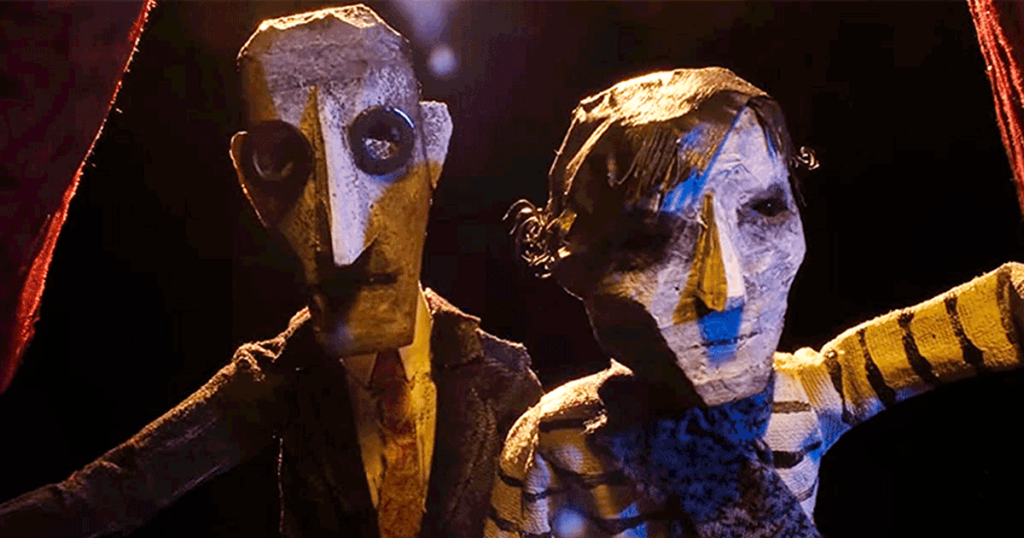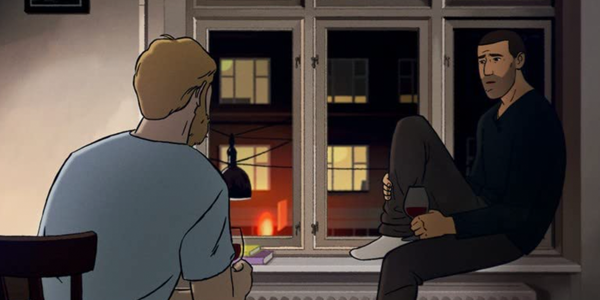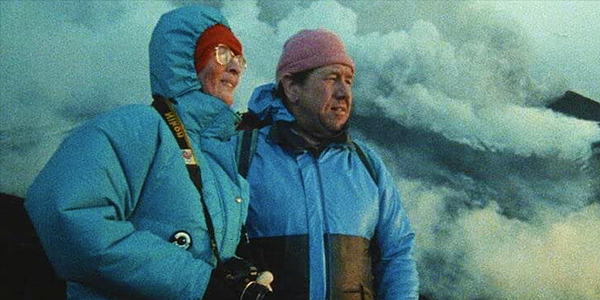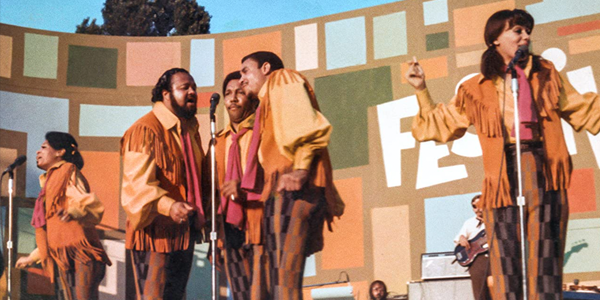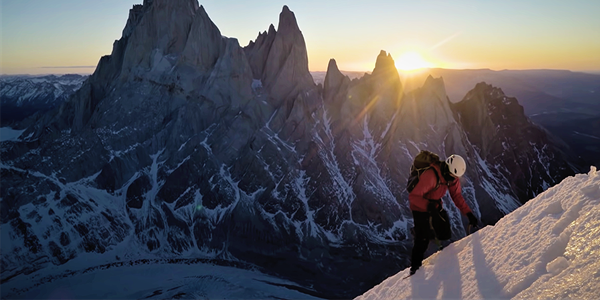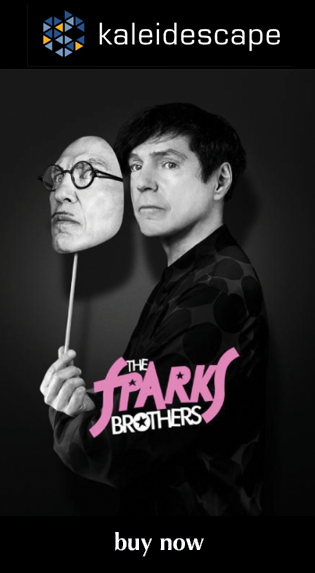ALSO ON CINELUXE
Sign up for our monthly newsletter
to stay up to date on Cineluxe
A documentary look at the perpetually obscure but hugely influential pop duo
by Dennis Burger
updated August 10, 2023
I think it’s reasonably safe to say that your interest in any documentary about a pop duo is probably largely contingent upon your familiarity with and love for the band and its music. That creates something of an interesting conundrum for The Spark Brothers, the documentary about brothers Ron and Russell Mael, who’ve been performing together since 1968, first as Halfnelson and, since 1972, as Sparks.
Wait, who? Exactly. Despite having a relatively successful music career spanning five decades, chances are good you’ve never heard of them unless you live in LA, Germany, or the UK. And that’s ultimately kind of the point of this film. In a sense, it’s a 140-minute answer to the questions, “Who are these weirdos, why do so many musicians love them, and how the heck have their teetered right on the edge of success for so very long?”
I’m not quite sure what I expected going into The Spark Brothers, since my impression of them—what little impression I’ve managed to cobble together over the decades—is mostly one of an aloof and enigmatic duo who’ve always been just a weensy bit too clever and ahead-of-their-time for their own good. I’ve seen interview clips here and there over the years—mostly in the heyday of MTV—and they always came off as a bit pretentious and too-good-for-you.
And the intro of this Edgar Wright-helmed doc does nothing to dispel that notion. The first few minutes play right into the brilliance, mystery, enigma, and theatrics. And once that’s all done, just to give anyone watching the film who’s never heard of the band the same assumptions the rest of us already had, Wright starts tearing down those walls to create an interesting and intimate portrait of two siblings who love each other, love their art, and never really seemed to care too much about commercial success anyway.
It is, at times, a tender exploration of their lives and music. It is, at other times, a silly and irreverent takedown of the music industry and the whimsical and capricious winds of pop culture. But what it always is, from opening credits to the end, is sincere, vulnerable, and honest.
And even if you’ve never heard of the band or any of its songs—despite the fact that they influenced or inspired everyone from Depeche Mode to Duran Duran to Red Hot Chili Peppers to They Might Be Giants—I think you’ll be a fan by the end. But not necessarily of their music. Given that they’re impossible to categorize in terms of genre and change their style with every album, it’s hard to say if you’ll dig any of their tunes. But you’ll certainly be a fan of these delightfully kooky, gracious, humble gentlemen and the shadow they’ve cast on 50 years’ worth of popular music, even if they never got the spotlight for more than a split-second.
And much of that comes down to the way the film was shot and edited. For one thing, The Spark Brothers is just visually spectacular. Yes, it’s comprised mostly of talking heads looking into, or just to the side of, the camera. And there’s also the expected collection of old photos and archival film and video. But Wright also makes liberal use of traditional 2D animation, animated collages, and even some 3D that looks like either claymation or CGI to illustrate anecdotes for which no visuals exist.
This is the sort of film I’d normally treat like an audiobook with accompanying visuals. I might be inclined to put on a documentary of this sort in the background while I’m painting D&D minis or practicing my Rubik’s Cube algorithms. But The Spark Brothers grabbed my attention from the giddy-up and refused to let go.
Kaleidescape’s Ultra HD/HDR presentation certainly didn’t hurt in that respect. It’s true that the HDR doesn’t call attention to itself for much of the film—especially the old videotaped segments, tattered photos, and 16mm film from the ’50s and ‘60s. But it’s there when it’s needed, and it’s applied judiciously to give the image some pop and pizzaz when appropriate, especially toward the end.
I could say much the same about the DTS-HD Master Audio 5.1 soundtrack. It’s mostly a front-channel affair, and a dialogue-heavy one at that. But the surround channels are employed with laser precision to expand the soundfield when such is called for. Perhaps the most surprising thing about the mix is just how dynamic it is. Woe be to those who try to cram this punchy and at times energetic mix through TV speakers or a cheap soundbar. It’s not going to tax your amps, exhaust your subs, or remind you every second just what a good investment all those extra speakers around the room were, but it’s still an artful and deliberate mix that serves the film well.
These days, so few films are keepers for me. I’ve grown accustomed to the tenuous libraries available from all the major streaming services, and actual film purchases are getting fewer and farther between, but The Spark Brothers is an absolute keeper. Normally, a doc of this nature would be a one-time watch. After all, there’s nothing else to learn after one viewing, is there? And most films of this nature hinge on controversy, scandal, interpersonal conflict, backstabbing, and an absolute refusal to take any real personal responsibility. But here we have a film with no real salaciousness, bickering, or substance abuse, or orgies or tales told out of school. And yet it’s so visually and narratively interesting that I can’t wait to watch it again.
Dennis Burger is an avid Star Wars scholar, Tolkien fanatic, and Corvette enthusiast who somehow also manages to find time for technological passions including high-end audio, home automation, and video gaming. He lives in the armpit of Alabama with his wife Bethany and their four-legged child Bruno, a 75-pound American Staffordshire Terrier who thinks he’s a Pomeranian.
PICTURE | The HDR doesn’t call attention to itself for much of the film but it’s there when it’s needed, applied judiciously to give the image some pop and pizzaz when appropriate
SOUND | The DTS-HD Master Audio 5.1 soundtrack is mostly a dialogue-heavy front-channel affair, but the surround channels are employed with laser precision to expand the soundfield when such is called for
© 2023 Cineluxe LLC


